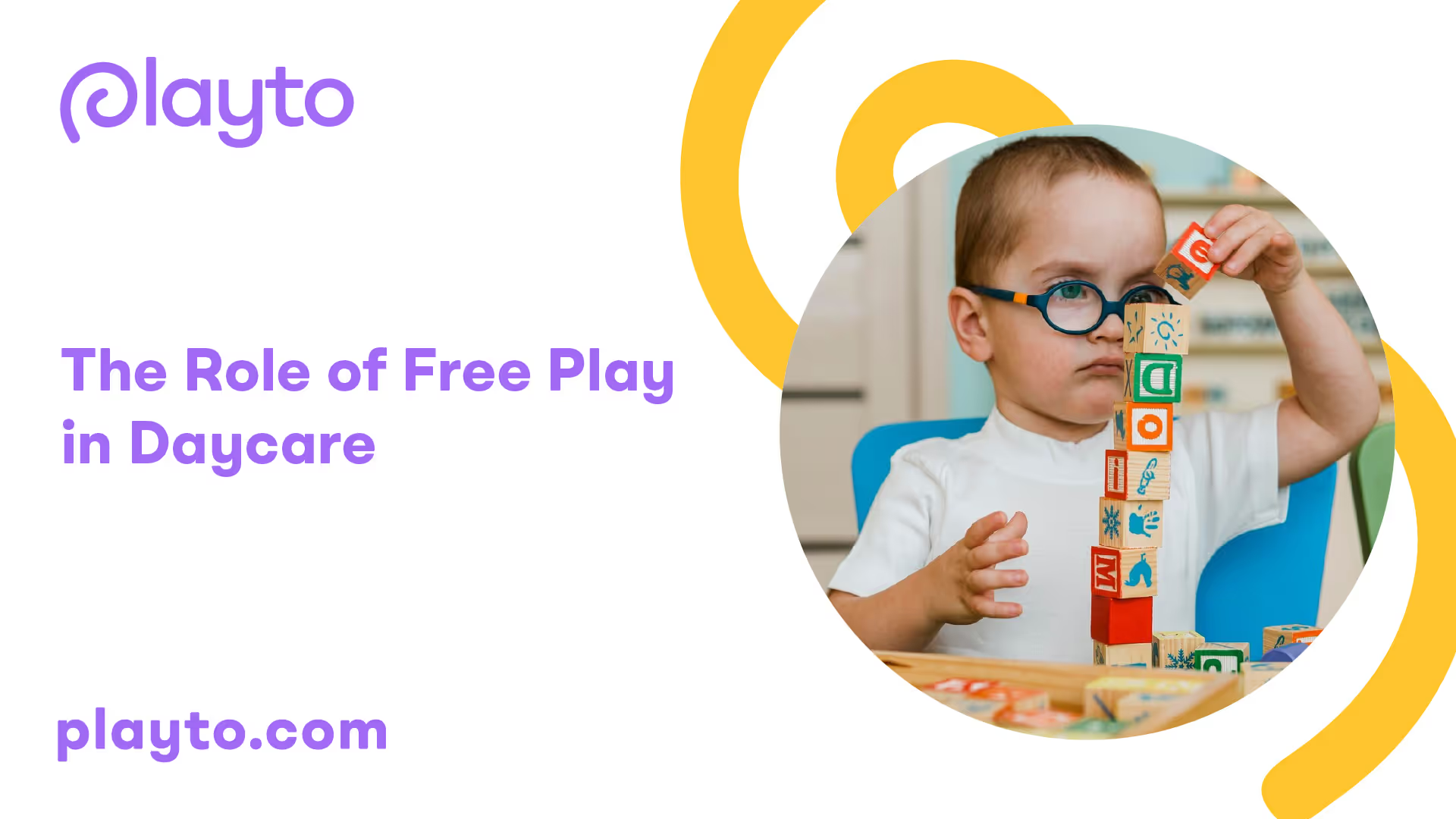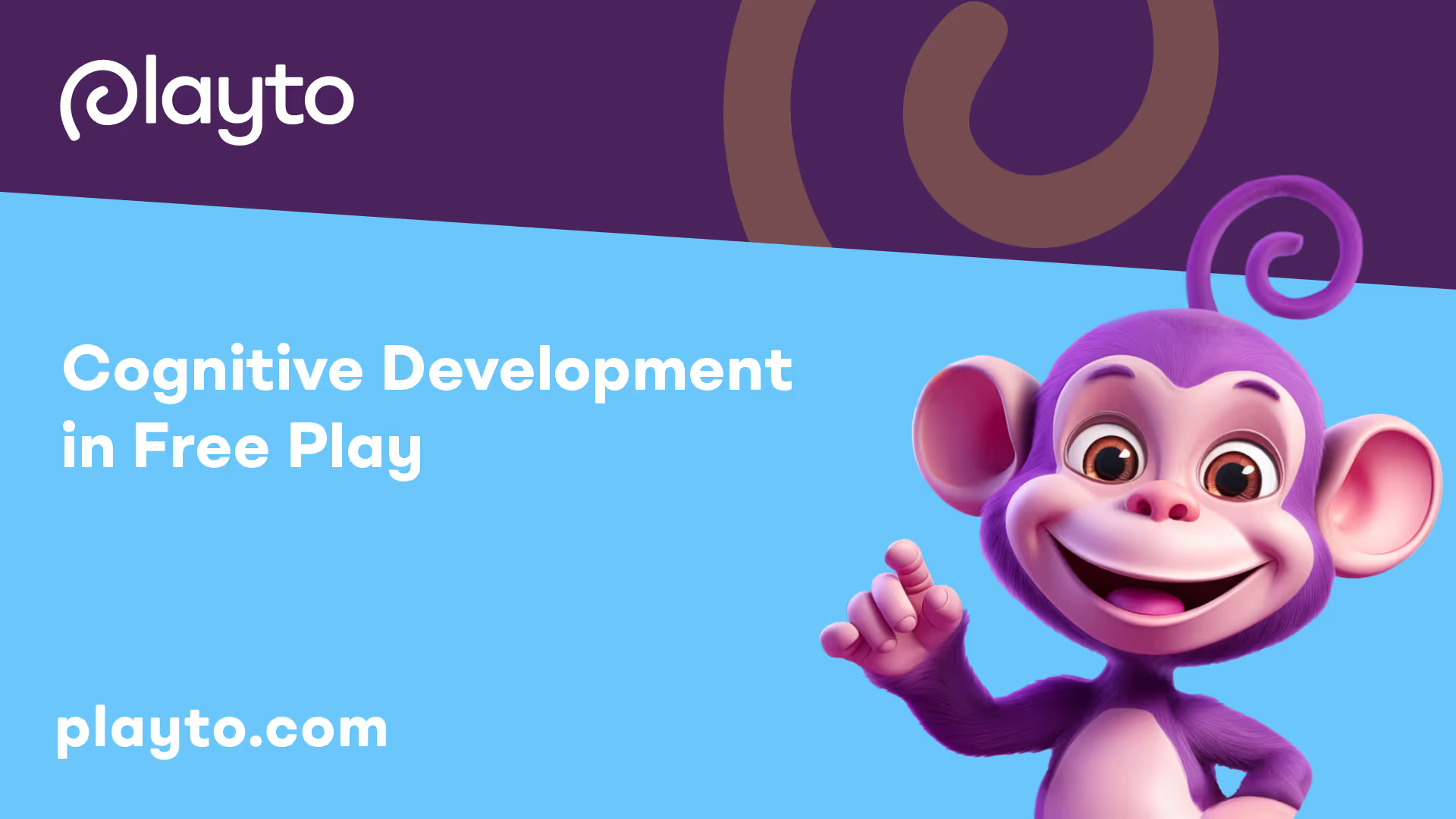
The Importance of Free Play
Free play is an essential component of a child's development, providing them with opportunities for exploration, creativity, and socialization. Let's dive into the benefits of free play and understand its role in child development.
Benefits of Free Play
Free play allows children the opportunity to engage with the world around them, explore things that interest them, and discover more about how the world works. It encourages curiosity and offers a chance to interact with nature [1]. Here are some key benefits of free play:
- Socialization: Free play is a valuable platform for children to practice their social skills, form relationships, work together to solve problems, and learn empathy while interacting with their peers [1]. It enables children to develop communication skills, cooperation, and conflict resolution abilities.
- Cognitive Development: Through free play, children engage in activities that stimulate their cognitive abilities. They have the freedom to make choices, solve problems, and think critically. Free play provides children with the opportunity to learn from their mistakes in a low-stakes environment, fostering the development of problem-solving skills [1].
- Boosting Creativity: Unstructured playtime allows children to tap into their imagination and explore their creativity. They can invent scenarios, create stories, and develop their own unique ideas. By engaging in creative play, children enhance their divergent thinking and develop a sense of innovation.
- Building Confidence: Free play offers a safe space for children to express themselves, develop quick thinking, and process emotions. It allows them to explore the world around them, leading to increased confidence and a unique life perspective [1]. Children who tend to be shy can benefit from free play as it helps boost their self-assurance.
Role of Free Play in Development
Free play is a vital component in a child's overall development. It supports their physical, cognitive, social, and emotional growth. By engaging in unstructured play, children learn to navigate the world around them, develop problem-solving skills, and enhance their creativity.
During free play, children have the opportunity to take risks, make decisions, and explore their interests. This freedom promotes independence and self-discovery. It allows children to learn at their own pace and develop a sense of autonomy.
Furthermore, free play provides children with the chance to interact with their peers, negotiate roles, and collaborate on various activities. These social interactions foster the development of important social skills, such as communication, empathy, and teamwork.
In conclusion, free play plays a crucial role in a child's development. It offers numerous benefits, including socialization, cognitive development, creativity, and confidence building. By providing children with ample opportunities for unstructured play, we support their holistic growth and help them thrive in various aspects of life.

Socialization Through Free Play
Free play plays a crucial role in the social development of children in daycare. It provides opportunities for children to interact with their peers, learn social skills, and develop empathy. Let's explore the importance of building social skills and developing empathy through free play.
Building Social Skills
Engaging in free play allows children to practice and refine their social skills. During playtime, children learn how to communicate, cooperate, negotiate, and take turns. They engage in conversations, share toys, and learn to respect the boundaries of others. These interactions help children understand social norms, develop friendships, and build positive relationships with their peers.
Studies have shown that unstructured play improves children's social skills. The American Academy of Pediatrics emphasizes the role of free play in a child's development, stating that when children are left to explore toys without direct input from caregivers, they are more likely to discover various attributes of the toys [2]. Through these self-directed interactions, children gain confidence in their social abilities and become better equipped to navigate social situations.
Developing Empathy
Free play also provides a platform for children to develop empathy, which is the ability to understand and share the feelings of others. When children engage in imaginative play scenarios or cooperative activities, they learn to consider the perspectives and emotions of their playmates. This empathy-building process fosters kindness, compassion, and the ability to connect with others on an emotional level.
During free play, children have the opportunity to take on different roles, such as pretending to be a doctor, a teacher, or a parent. Through these role-playing scenarios, children develop a deeper understanding of different perspectives and emotions. They learn to recognize and respond to the needs and feelings of others, enhancing their social awareness and empathy.
By providing ample time for free play in daycare settings, caregivers and educators can create an environment that promotes socialization and the development of essential social skills. Encouraging children to engage in cooperative activities, such as building blocks together or participating in group games, further enhances their ability to work as a team and collaborate effectively.
As children engage in free play, they not only have fun but also acquire valuable social skills and develop empathy. These skills are essential for building healthy relationships and navigating social interactions throughout their lives. By fostering socialization through free play, daycare centers create an environment where children can thrive socially and emotionally.

Cognitive Development in Free Play
Engaging in free play provides children with valuable opportunities for cognitive development. Through unstructured play, children can enhance their problem-solving skills and boost their creativity.
Problem-Solving Skills
Free play allows children to encounter various challenges and obstacles, giving them the chance to think critically and develop problem-solving skills. When children engage in open-ended play, they are encouraged to explore different solutions, make decisions, and adapt their strategies as they encounter new situations. According to Bricks 4 Kidz, free play provides children with the freedom to make mistakes in a low-stakes environment, allowing them to learn from their errors and develop problem-solving skills without the fear of failure.
During free play, children often encounter problems that require them to think creatively and find innovative solutions. Whether it's building structures with blocks, solving puzzles, or creating imaginative scenarios, children are constantly challenged to think critically and come up with unique approaches. This process of problem-solving helps to sharpen their cognitive abilities and prepares them to face real-life challenges with confidence.
Boosting Creativity
Unstructured play also plays a crucial role in fostering children's creativity. When children engage in free play, they have the freedom to explore their imaginations and express themselves in unique ways. According to the American Academy of Pediatrics, free play allows children to discover different attributes of toys and the world around them without direct instruction [2]. This freedom to explore and experiment nurtures their creativity and encourages them to think outside the box.
During free play, children often engage in imaginative play, where they create their own scenarios and storylines. This type of play allows children to develop their storytelling skills, expand their vocabulary, and exercise their imagination. By pretending to be different characters or engaging in make-believe scenarios, children enhance their cognitive abilities and learn to think flexibly and creatively.
By providing ample opportunities for free play, daycare centers support children's cognitive development. Through problem-solving and creativity in play, children develop vital cognitive skills that will benefit them in various aspects of their lives.
Physical Activities in Free Play
Physical exercise is an integral part of free play, providing children with opportunities for movement and activity, which is essential for keeping their minds and bodies healthy [1]. Engaging in physical activities during free play not only promotes physical health but also contributes to the overall development of children.
Importance of Physical Exercise
During free play, children have the chance to engage in various physical activities that promote their physical and motor skills. These activities include climbing, jumping, running, skipping, and swinging in well-equipped play areas. Through these movements, children develop balance, coordination, and strength, which are crucial for their growth and development [2].
Regular physical exercise has numerous benefits for children. It helps them maintain a healthy weight, develop strength and coordination in various muscle groups, and prevent diseases. Additionally, physical play supports the development of gross motor skills, such as running and jumping, and fine motor skills, such as manipulating objects and controlling hand-eye coordination [3].
Incorporating Movement
Incorporating movement into free play can be achieved through various activities and games. Some examples include:
- Tag: Playing tag allows children to engage in running and chasing, developing their speed and agility.
- Obstacle Courses: Setting up obstacle courses encourages children to climb, crawl, jump, and balance, enhancing their coordination and motor skills.
- Dancing: Dancing not only promotes physical activity but also allows children to express themselves creatively. You can learn more about the role of dance in daycare education in our article on the role of dance in daycare education.
- Sports: Introducing simple sports activities like throwing and catching a ball or kicking a ball promotes hand-eye coordination, teamwork, and sportsmanship.
By providing a variety of physical activities during free play, children have the opportunity to explore, experiment, and develop their physical abilities. It is important for daycare providers to ensure access to safe and well-equipped play areas that encourage active movement.
Remember, outdoor play is also crucial for children's development. Spending time outdoors allows children to engage in free play, interact with peers, strengthen large muscles, and connect with the natural world. Research indicates that children who spend more time outdoors are more physically active and less likely to face health problems in the future [4].
Physical activities play a vital role in free play, supporting children's physical health, coordination, and overall development. By encouraging and facilitating movement during free play, daycare providers can help children build a strong foundation for lifelong physical fitness and well-being.
Types of Free Play
In daycare settings, free play is essential for children's development and overall well-being. Within free play, children engage in various types of play that promote different aspects of their growth and learning. Two common types of free play are rough-and-tumble play and imaginative play.
Rough-and-Tumble Play
Rough-and-tumble play is a physical and vigorous type of play that allows children to learn to take healthy risks, develop adventurous minds, build physical control and coordination, self-confidence, and resilience. Examples of rough-and-tumble play include climbing, mock wrestling, chasing games, rolling on the ground, and play-fighting with plastic swords [2]. This type of play helps children develop their motor skills, spatial awareness, and social interactions.
During rough-and-tumble play, children learn how to negotiate boundaries, communicate their intentions, and practice self-regulation. It provides an opportunity for them to explore their physical abilities and engage in social interactions with their peers. By engaging in these active and energetic play experiences, children learn to understand their own strength, develop coordination, and build relationships with others [3].
Imaginative Play
Imaginative play is another important type of free play that allows children to act out imaginary scenarios and take on different roles. This type of play enhances their communication and creative skills. Teachers can create dramatic play area themes such as a bakery, grocery store, restaurant, or doctor's office, where children can engage in pretend play. Additionally, providing costumes and props allows children to immerse themselves in different roles, such as superheroes or astronauts, stimulating their imagination and creativity [2].
Through imaginative play, children develop their language skills, problem-solving abilities, and social-emotional skills. They learn to express themselves, negotiate roles and responsibilities, and collaborate with others. Imaginative play encourages children to think outside the box, explore different perspectives, and develop empathy for others. By engaging in pretend play, children can create and explore their own worlds, fostering their imagination and creativity [3].
By offering opportunities for both rough-and-tumble play and imaginative play, daycare providers enable children to explore their physical abilities, enhance their social interactions, and stimulate their creativity. These types of free play contribute to the holistic development of children, promoting their physical, cognitive, and social-emotional growth.
Encouraging Free Play
In a daycare setting, encouraging free play is essential for children's development and overall well-being. It provides them with opportunities to explore, create, and learn at their own pace. Here are two key ways to promote free play in daycare: promoting independence and supporting creative expression.
Promoting Independence
Promoting independence in children is a crucial aspect of encouraging free play. By allowing children to engage in play on their own, they develop the capacity to tackle tasks independently and discover their own interests and preferences. This autonomy helps them avoid over-dependence on the teacher or caregiver and fosters a sense of self-confidence.
To promote independence, daycare providers can:
- Create an environment that is safe and conducive to exploration. Ensure that toys, materials, and play areas are easily accessible for children to use independently.
- Encourage children to make choices during playtime. Offer a variety of toys, games, and activities for them to choose from, allowing them to follow their own interests and engage in self-directed play.
- Provide opportunities for children to problem-solve and make decisions on their own. Avoid immediately stepping in to solve every challenge they encounter during play. Instead, encourage them to find their own solutions and offer guidance when needed.
By promoting independence, daycare providers empower children to take ownership of their play experiences and build important life skills.
Supporting Creative Expression
Supporting creative expression is another crucial aspect of encouraging free play. When children engage in creative play, they use their imagination, explore their ideas, and express themselves in unique ways. This helps them develop problem-solving skills, think critically, and nurture their creativity from an early age.
To support creative expression during playtime, daycare providers can:
- Provide a wide range of materials and resources that encourage creativity, such as art supplies, dress-up clothes, building blocks, and open-ended toys.
- Avoid placing strict limitations on how children should play with toys or materials. Instead, allow them the freedom to explore and use their imagination to transform objects and create their own narratives.
- Offer opportunities for children to engage in imaginative play, such as pretend play areas or storytelling corners. These activities stimulate their creativity and allow them to explore different roles and scenarios.
By supporting creative expression, daycare providers foster a love for imaginative play and enable children to develop their unique ways of thinking and problem-solving.
Encouraging free play by promoting independence and supporting creative expression not only enhances children's development but also allows them to experience the joy and wonder of self-directed play. By creating an environment that embraces these principles, daycare providers can nurture children's natural curiosity, foster their independence, and lay the foundation for a lifelong love of learning and creativity.
.avif)